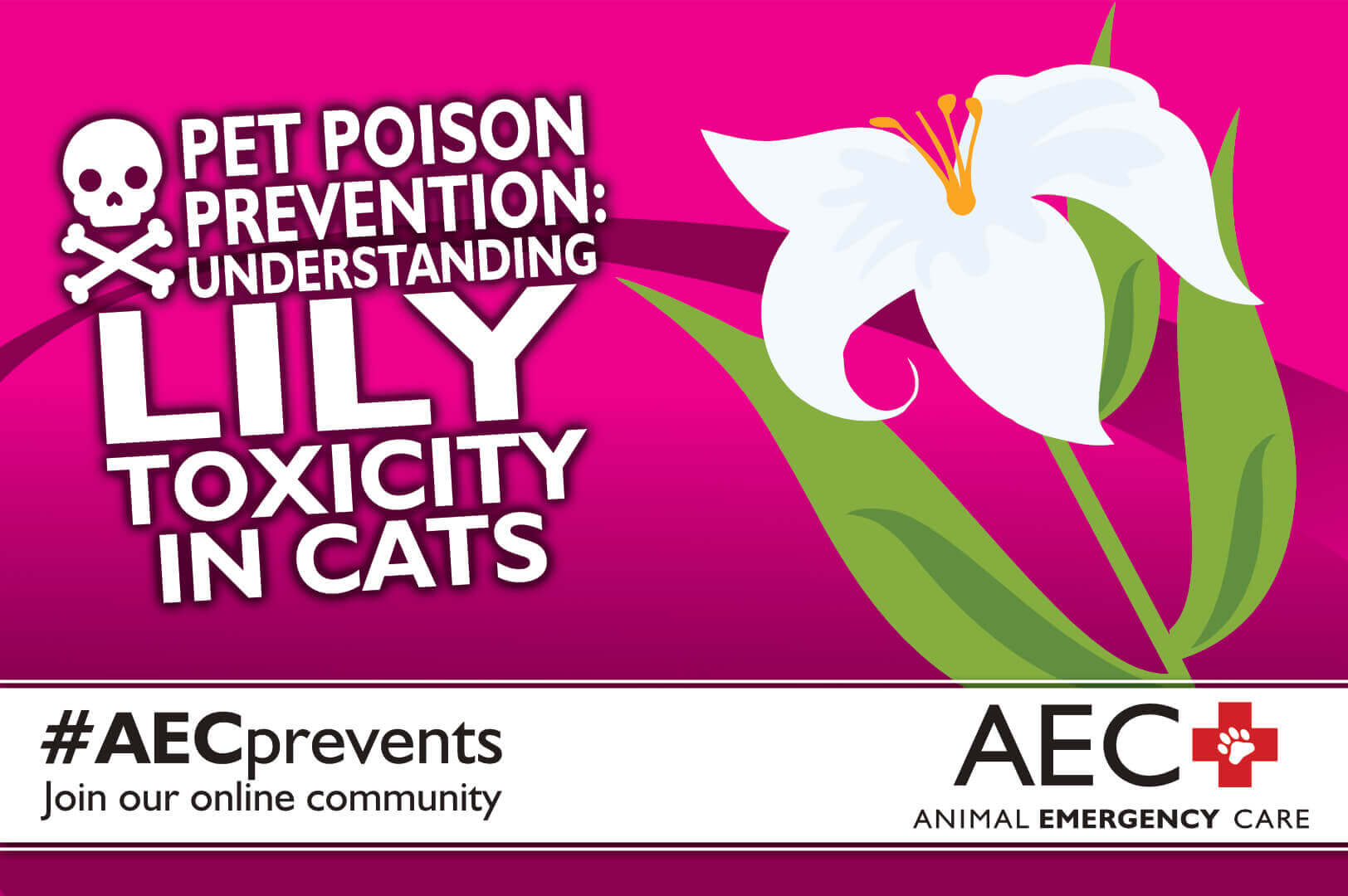Springtime is almost here and many people and their pets will start spending more time outdoors as the weather slowly becomes warmer. Gardening is a popular and relaxing spring pastime with the fruits of your labor resulting in beautiful flowers that adorn coffee tables and dining rooms. However, many popular plants and flowers are toxic to pets, especially members of the lilium family. Cats in particular are sensitive to these flowers although others such as lily of the valley can be problematic for dogs and cats. Our Animal Emergency Care team wants to ensure you understand the dangers of lilies and what to do if your pet is poisoned.
What is lily toxicity in pets?
Lily plants and flowers are popular springtime decor in many homes and gardens. A variety of plants and flowers are referred to as lilies, including hybrid lily plants. This diversity can be confusing to pet owners who are unfamiliar with pet-toxic plants. True lilies or daylilies are extremely toxic to cats, and the entire plant including the stems, leaves, flowers, pollen, and vase water can be deadly if ingested. Small amounts of any lily part are toxic, and cats who groom only a few pollen grains from their paws or body can become poisoned. The exact chemical that is toxic to cats has not been identified. Cats who ingest lilies are at risk for renal failure and death without treatment. Dogs who ingest lilies do not develop renal failure but may experience minor gastrointestinal (GI) upset. Other plants named “lily” which are not true lilies, including lily of the valley and flame lilies, can cause heart problems and organ failure when ingested by dogs and cats.
Lily toxicity signs in pets
Lily toxicity signs will vary among cats and these dangerous plants affect some pets more than others. The reason is unclear. Lily toxicity signs occur less than 12 hours after ingestion and renal damage occurs between 12 and 24 hours after exposure. Signs include:
- Decreased activity
- Lethargy
- Excess drooling
- Nausea and vomiting
- Decreased appetite
- Increased thirst
- Increased urination
- Dehydration
- Lack of urination after one or two days
Lily toxicity diagnosis and treatment in pets
Diagnosis of lily toxicity is based on clinical signs, a history of ingestion, or owners who found plant pieces in their pet’s vomit. Your pet will require immediate veterinary care if you suspect they have had contact with this plant or you have observed them eating a portion of a lily plant or flower. Bring a photo or flower from the plant to the veterinary hospital for identification when possible to help with a fast diagnosis and treatment plan. Cats who ingest lilies are at risk for irreversible kidney damage and some do not recover despite aggressive veterinary medical care. Cats who do not receive treatment less than 18 hours after toxic lily ingestion will experience irreversible kidney failure and will not likely survive. Your veterinarian will recommend blood and urine tests to closely monitor your pet’s kidney and organ function. Treatment for lily toxicity includes:
- Induced vomiting if the pet ingested the plant less than two or three hours ago
- Anti-nausea medication
- Activated charcoal for toxin absorption
- Intravenous fluids to support the kidneys and prevent dehydration
- Heart rate and blood pressure monitoring
- Body temperature monitoring and regulation
- Dialysis if urine production has stopped
Payment options for lily toxicity treatment in pets
Pets undergoing treatment for lily toxicity will likely require an extended hospital stay and several follow-up appointments to ensure their kidneys are healthy. This long-term care can result in a large veterinary bill but several payment options are available to cover treatment costs. Purchasing a pet health insurance plan like Trupanion will ensure funds are available for emergency treatment. Trupanion will pay your veterinary clinic directly which eliminates the need to submit paperwork and wait for reimbursements. Other payment options include:
- Pet health savings accounts
- Care Credit
- Scratch Pay
- Short-term loans
Lily toxicity prevention for pets
Cats will naturally investigate plants by chewing or pawing at the flowers, so you must ensure they do not have access to any lily plants or flowers. Do not let your pets have access to the yard if lilies are present. Check the ASPCA toxic plant list before bringing any plants indoors or planting them in your garden. Provide pet-safe plant material such as fresh catnip to decrease your cat’s desire to seek out other plants.
A quick response and treatment is critical for a successful outcome in pets who ingest toxic lilies. Immediately call your family veterinarian or bring your pet to Animal Emergency Care if it is after hours. #AECprevents


